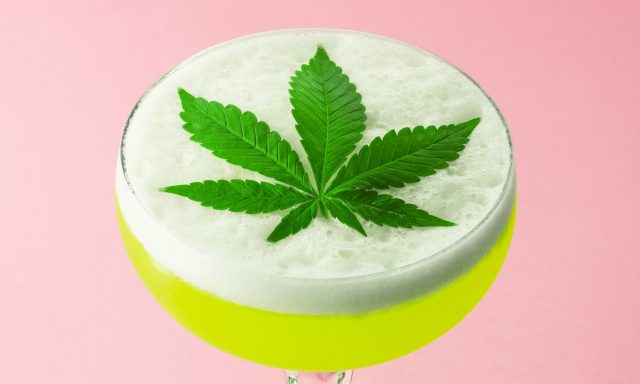This website uses cookies so that we can provide you with the best user experience possible. Cookie information is stored in your browser and performs functions such as recognising you when you return to our website and helping our team to understand which sections of the website you find most interesting and useful.
THC drinks sector boost as Biden changes law on cannabis
President Joe Biden has announced moves to reclassify cannabis as a Schedule III drug, delivering the biggest drugs reform in the US for half-a-century.

According to the US Justice Department, moves are now being made to downgrade marijuana from a Schedule 1 drug to Schedule III under the federal Controlled Substances Act, which means it is still illegal but no longer positioned alongside heroin, ecstasy and LSD.
Biden said on a statement on X (formerly Twitter) the move was “important” and would be “reversing longstanding inequities”.
He said too many lives have been “upended because of our failed approach to marijuana”, some three decades after the crime bill that he helped to craft under the Clinton administration had a significant impact.
Biden added that he was “committed to righting those historic wrongs”, such as the tough crime act in 1994, which is outlined in films such as 13th, and saw citizens incarcerated in US prisons for 25 years and even longer for small-scale marijuana usage or dealing.
Although the move still needs DEA approval, it stops short of completely decriminalising marijuana. In addition, it does not legalise it for recreational use, which is currently law in 24 states and the District of Columbia. In addition, 38 states have legalised it for medicinal purposes.
By being in Schedule III, marijuana will now sit alongside anabolic steroids, ketamine and testosterone. It is the first time cannabis has been in such a category since the Controlled Substances Act came into force in 1970.
Drinks industry
The move is critical for the THC drinks category, as although it stops short of outright decriminalisation, rescheduling will enable those in the legal cannabis industry to gain easier access to traditional banking services and investment opportunities.
In 2020, Biden had promised to decriminalise cannabis during the election cycle, but he has continued to oppose full-scale legalisation. Instead he has offered federal pardons to those who were convicted.
He wrote on X that “no-one should be in jail just for using or possessing marijuana”.
One more big step toward fixing our failed approach to marijuana. pic.twitter.com/Uc9qepehrf
— President Biden (@POTUS) May 16, 2024
Legislation
The news comes as the legislative landscape for THC is continuously changing in the US, and means the formal ruling from Biden begins a 60-day public consultation and ability for the DEA to respond.
Although intoxicating hemp beverages could be argued to be legal through the Agriculture Improvement Act of 2018 (2018 Farm Bill), it has been made clear by lawyers and drug consultants that there are risks remaining under federal and state food and drug laws.
Just last week, the State of Louisiana advanced a bill to reduce the legal level of THC in consumable products from 0.3% to 0%, which would wipe out the sale of THC seltzers should it pass into law.
The expectation is that rescheduling and decriminalisation will allow burgeoning THC beverage brands to expand, with commentators also expecting it to become one of the biggest overall segments for THC and cannabis in coming years.
Point 4. Cannabis beverages WILL have a real place/effect on the industry and have huge upside
I think the largest market for cannabis in the US will actually end up being THC-infused beverages (not smoking/vaping/edibles). pic.twitter.com/Nt3K7JfGJI
— Noah Sanborn Friedman (@noahsfriedman) May 19, 2024
Related news
Grammy-winning Ariana Grande bewitched by Barolo
Ferrari Trento unveils F1 podium bottle for Vegas race
What the US wine industry needs from its next agriculture secretary

